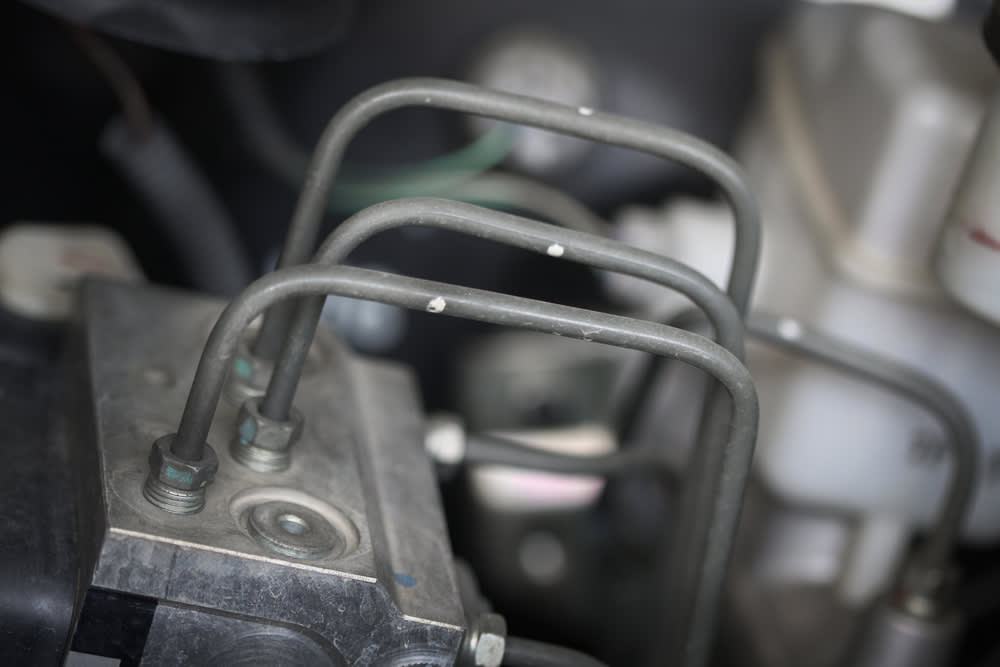

Your ABS system works both by means of electricity and hydraulic pressure. Fluid levels need to be monitored at all times, and that is the job of the ABS fluid level sensor. Located in the master cylinder, the ABS fluid level sensor is constantly working to make sure that the brake fluid is at the proper level. Essentially, it is a switch that sends a message to your car’s computer if the fluid level ever drops below what is safe. Then, the car’s computer responds by turning on your ABS light, and disabling the ABS system. You will still have your regular braking system, but without the ABS, your brakes could lock up if you use them on slippery surfaces, and your stopping distance could be increased.
There is no set point at which your anti-lock brake fluid sensor has to be replaced. Simply stated, you replace it when it fails. Like other electrical components in your car, though, it is vulnerable to damage due to corrosion or wear and tear. The life of the anti-lock brake fluid sensor can also be reduced if you don’t have regular fluid changes.
Signs that your anti-lock brake fluid sensor needs to be replaced include:
- ABS light is on
- ABS system is not working
Any problems with your brakes should immediately be checked out by a qualified mechanic if you expect to continue to drive safely. YourMechanic can diagnose any problems with your ABS, and if necessary, replace the anti-lock fluid level sensor.



